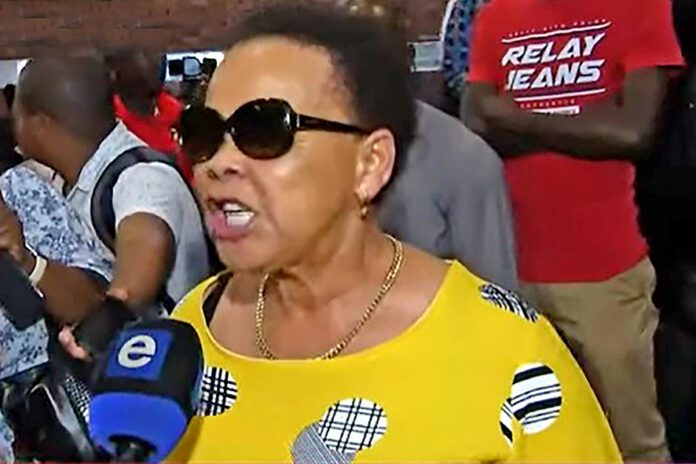The angry reaction by Chris Hani’s widow, Limpho, to the release of his killer Janusz Jakub Walus, should not be intellectualised or held up against the “equality before the law” mantra in a tone that seems to invalidate her experiences of the past 28 years. It is her truth. Her pain.
It is the crucible of her personal and private suffering. And it is in no one’s province to lecture her to “move on” from the cold-blooded slaying of her husband and father to her children – especially when she feels his killer should have died in prison.
The day Hani was slain was the day his family began its own life sentence – a life without a husband, father and grandchildren who never got to know their celebrated grandfather.
However, for the young generation born in a democratic South Africa, many of whom who have been condemned to a life of lack, ignorance and begging, the release of Walus is a poignant reminder that Hani and countless other freedom fighters died in vain.
The outrage expressed by some of Hani’s comrades who now serve in different spheres of government is nothing but a sham – a desperation to hide the painful truth that even their conscience bears testimony: they failed Hani.
The release of Walus does not kill the ideals Hani lived for – just as the three bullets that killed his mortal body didn’t. It’s the unquenchable corruption of his comrades that kill his ideals about a free and democratic South Africa. The democratic dividends that Hani was brutally killed for are a pipe dream for many young, black South Africans.
The idea that we must not let our soldiers die in vain dates to ancient Athens. Literature records that it was during the Peloponnesian War that Pericles, a Greek politician and general during the Golden Age of Athens, delivered a funeral oration in which he counselled his compatriots to see themselves in the heroism of deceased fighters.
He argued that in living up to the promise of the deceased fighters, the living could prove themselves worthy of the sacrifice of the dead only by fighting for what they fought for and embodying the virtues they exemplified.
How many of Hani comrades-in-arms would look Limpho in the eye and say, ‘Your husband did not die in vain?” And who would believe that?
Contemplating the scale of the multitudes of failures by the democratic state, and the corruption that dominates our body politic, one struggles to see if there are any future circumstances that would one day enable us to honestly and credibly say to Limpho: “Your husband did not die in vain.” At the moment that seems nearly impossible.
Many of those who were with Hani in the trenches gave up the fight in 1994 when they began tasting the beauty of power and all the niceties that come with it. This is the “I did not join the struggle to be poor” brigade.
Former deputy chief justice Dikgang Moseneke, a freedom fighter in his own right, put the failures of the democratic government in perspective last month when he addressed senior journalists.
Moseneke, who has the dubious honour of being the youngest prisoner on Robben Island, said South Africa’s revolution had failed and had become a crime against the people.
Moseneke said: “I conclude with a heavy heart that the revolution has failed. The quest to alter power relations in society in favour of the excluded and marginalised masses of our people has failed.”
This is surely not the state of affairs Hani fought and died for. Instead of grabbing on to public anger about the release of Walus after spending 28 years of his life behind bars, the governing class should reflect on what they have been doing to improve the lives of the people for the past 28 years.
Reality is too ghastly to contemplate for those who stand on public platforms and proclaim, ‘long live Chris Hani, long live? They have failed Hani and they know it.
Follow @SundayWorldZA on Twitter and @sundayworldza on Instagram, or like our Facebook Page, Sunday World, by clicking here for the latest breaking news in South Africa. To Subscribe to Sunday World, click here



